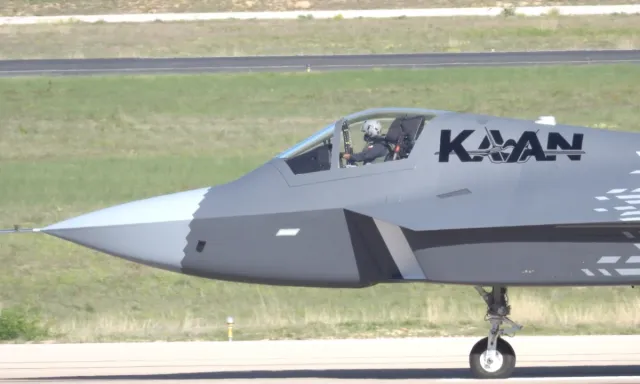In a strategic move set to recalibrate its military alliances and technological partnerships, Egypt has officially joined Turkey’s Kaan fighter jet development program, becoming the first African and Arab country to take part in the ambitious next-generation stealth aircraft project.
The decision, announced jointly by officials from the Egyptian Ministry of Defense and Turkey’s state-owned aerospace company Turkish Aerospace Industries (TAI), marks a significant pivot in Cairo’s defense procurement strategy one that sees it gradually diversifying away from traditional Western suppliers like the United States and France.
A Strategic Realignment
For decades, Egypt’s air power has been shaped by American F-16s and French Rafales. However, growing geopolitical complexities, sanctions threats, and the global shift toward multipolar defense cooperation have prompted countries like Egypt to reconsider over-dependence on Western military hardware.
Egyptian defense analyst Hassan Mahmoud notes:
“This move is not just about buying into a new jet. It’s about being part of its design, manufacturing, and potential export. Egypt wants to be a contributor not just a consumer.”
Why the Kaan Jet?
The Kaan fighter jet, previously known as TF-X, is Turkey’s fifth-generation stealth aircraft designed to compete with the U.S. F-35 and Russia’s Su-57. It boasts advanced stealth features, AI-assisted avionics, supercruise capability, and indigenous weapon integration.
Egypt’s entry into the project is expected to open up technological exchange, co-production opportunities, and joint training exercises, while also increasing the regional prestige of the Kaan initiative.
Dr. Aylin Kaya, a Turkish aerospace engineer, told Anadolu Agency:
“Having Egypt on board validates the Kaan project’s growing international appeal. It also enhances its export potential across Africa and the Arab world.”
Geopolitical Implications
Egypt’s new defense relationship with Turkey comes after years of strained diplomatic ties mostly due to ideological and regional rivalries. However, recent efforts by both governments to normalize relations and boost economic cooperation have laid the groundwork for this defense partnership.
Analysts believe this move could strengthen Egypt’s autonomy in foreign policy, signaling to global powers that it is willing to explore non-Western alternatives to safeguard national interests.
It could also position Egypt as a regional defense tech hub, especially if local assembly or parts manufacturing agreements follow.
What It Means for Africa and the Middle East
Egypt’s participation in the Kaan project could pave the way for other African and Arab nations to consider joint development over direct imports, thereby shifting the continent’s long-standing reliance on arms deals from Europe and the U.S.
It also reinforces Turkey’s growing reputation as a rising defense exporter, having already sold drones, naval platforms, and ground vehicles to several African and Asian countries.
Conclusion: A New Flight Path
As the global defense landscape evolves, Egypt’s decision to join the Kaan fighter jet program marks a bold strategic shift. It is a signal to allies and adversaries alike that military modernization today means partnerships, not just purchases and that Cairo is ready to co-pilot its future in defense innovation.
